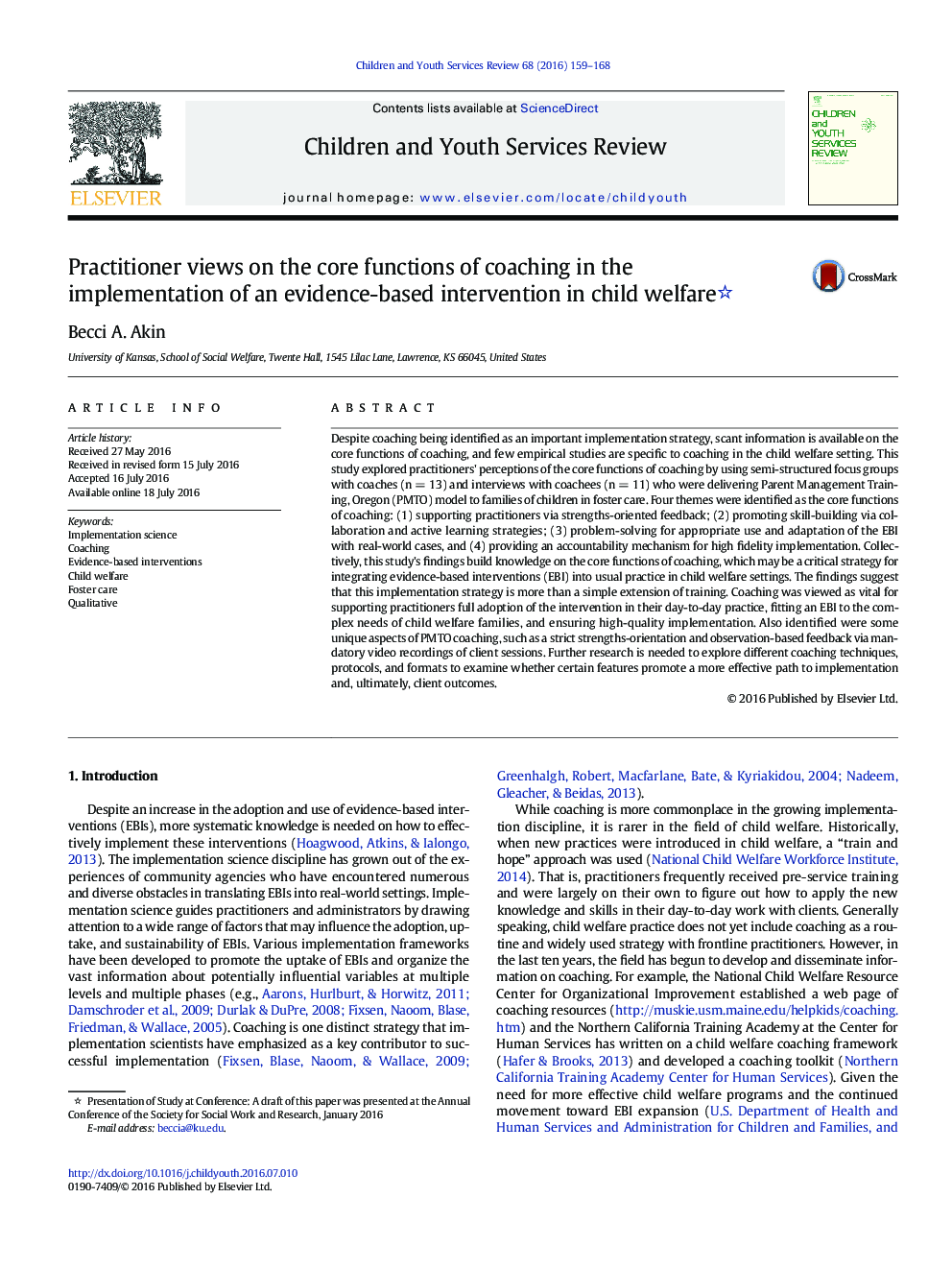| کد مقاله | کد نشریه | سال انتشار | مقاله انگلیسی | نسخه تمام متن |
|---|---|---|---|---|
| 345793 | 617765 | 2016 | 10 صفحه PDF | دانلود رایگان |
• Practitioners identified four core functions of coaching
• 1 - Supporting practitioners via strengths-oriented feedback
• 2 - Promoting skill-building via collaboration and active learning strategies
• 3 - Problem-solving for appropriate use and adaptation of the EBI with real-world cases
• 4 - Providing an accountability mechanism for high fidelity implementation
Despite coaching being identified as an important implementation strategy, scant information is available on the core functions of coaching, and few empirical studies are specific to coaching in the child welfare setting. This study explored practitioners' perceptions of the core functions of coaching by using semi-structured focus groups with coaches (n = 13) and interviews with coachees (n = 11) who were delivering Parent Management Training, Oregon (PMTO) model to families of children in foster care. Four themes were identified as the core functions of coaching: (1) supporting practitioners via strengths-oriented feedback; (2) promoting skill-building via collaboration and active learning strategies; (3) problem-solving for appropriate use and adaptation of the EBI with real-world cases, and (4) providing an accountability mechanism for high fidelity implementation. Collectively, this study's findings build knowledge on the core functions of coaching, which may be a critical strategy for integrating evidence-based interventions (EBI) into usual practice in child welfare settings. The findings suggest that this implementation strategy is more than a simple extension of training. Coaching was viewed as vital for supporting practitioners full adoption of the intervention in their day-to-day practice, fitting an EBI to the complex needs of child welfare families, and ensuring high-quality implementation. Also identified were some unique aspects of PMTO coaching, such as a strict strengths-orientation and observation-based feedback via mandatory video recordings of client sessions. Further research is needed to explore different coaching techniques, protocols, and formats to examine whether certain features promote a more effective path to implementation and, ultimately, client outcomes.
Journal: Children and Youth Services Review - Volume 68, September 2016, Pages 159–168
